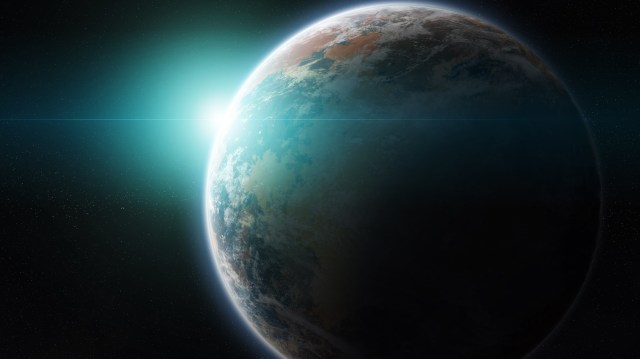
Hunting for life on other planets is hard; it’s like trying to spot an ant on the other end of a football field. The closest potential host, Venus, is 25 million miles away. Beyond our Solar System, exoplanets that have piqued astronomers’ interest are light-years away.
To search for life from these sizable distances, scientists look for biosignatures: elements, molecules, or substances that might have been made by life. These include oxygen and methane, among other compounds. But there’s growing doubt that biosignatures will ever constitute concrete evidence of extraterrestrials. After all, as philosopher of science Peter Vickers at Durham University notes, our knowledge of exoplanet chemistry and geology is almost as lacking as our conceptions of aliens. From so far away, how could we ever be sure that any potential biosignature didn’t come from non-life?
Gaiasignatures
Amid this uncertainty, Dr. Michael L. Wong, an astrobiologist and planetary scientist at the Carnegie Institution for Science, has proposed a new way of thinking about the search for life beyond Earth. In a recently published paper, he and a multidisciplinary team of colleagues outline the notion of “gaiasignatures.”
The name is a nod to the Gaia hypothesis, the idea that “living organisms interact with their inorganic surroundings on Earth to form a […] complex system” that serves to perpetuate life as we know it. Along this line, Wong and his co-authors contend that we should be looking for “signs of a global biosphere actively reorganizing the structure and behavior of a planet’s observable features.”
How could astronomers and astrobiologists see such signs?
“One intriguing and potentially viable route toward identifying Gaiasignatures is through a holistic evaluation of planetary atmospheric chemical networks,” the authors suggest. “Another is through measuring the statistical complexity of global features in reflected‐light time‐series data. Yet another approach is to identify signs of atmospheric seasonality.”
But Wong admits that it will be very unlikely to conclusively witness any gaiasignatures with current telescopes. Dirk Schulze-Makuch, a professor of planetary habitability and astrobiology at the Technical University Berlin, agrees.
“I don’t see getting this information anytime soon,” he told Big Think via email. “We are lucky if we can detect the main gases of exoplanets.”
Expanding the search
While we wait for improved astronomical tools to spot potential gaiasignatures, astronomers are hard at work identifying “Earthlike” planets: potential candidates to host life as we know it. Here, Wong and his colleagues also seek to shake up conventional thinking. Currently, astronomers tend to consider planets “Earthlike” if they have a similar radius, mass, and surface temperature to Earth. Ideally, they also orbit in a “habitable” zone around a star, where liquid water might be stable on the surface of a planet.
Wong thinks this definition is too narrow. Instead, he and his colleagues argue we should be looking for planets that have “coupled, emergent, dynamically persistent processes.” Magnetic dynamos, mantle convection, tectonic regimes, deep volatile cycles, and climate feedbacks are examples. Their justification for searching for processes rather than physical features is that these moving parts can roil life into existence. The more of them, the better.
Such a definition of “Earthlike” would greatly broaden the planets that might be considered. Schulze-Makuch noted that Jupiter could potentially be included.
Wong admits that the newly proposed definition of “Earthlike” might be overly broad, but it’s offered as a counter to the current, narrow paradigm. It might even push astrobiologists to look for life on planets that previously might have been ignored.
“Our paper is meant to excite discussion,” he told Big Think, humbly adding that it’s “not the final say.”
“We are so full of ignorance in the astrobiological community. I hope the paper pushes us into a place where we are uncomfortable, where progress can be made.”
Although Wong doesn’t deny that — at the moment — it’s more empirical to search for life similar to that which we know on Earth, he says we shouldn’t be afraid to look for life as we don’t know it.
“I hope we take a mindset where we are willing to look for weird life in weird places,” he said. “The only thing cooler than finding Earth 2.0 is finding something entirely different.”
